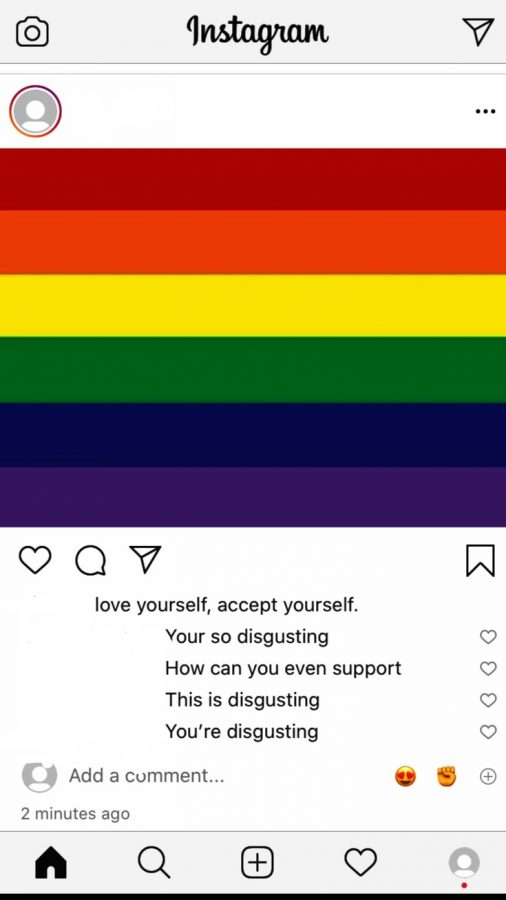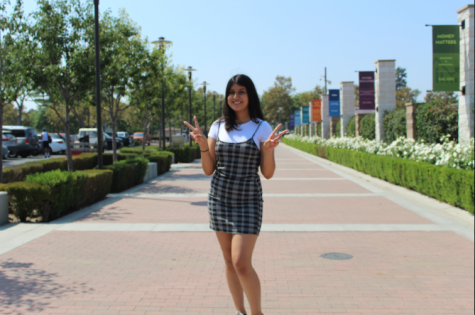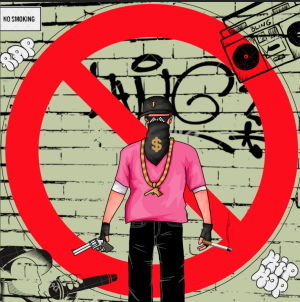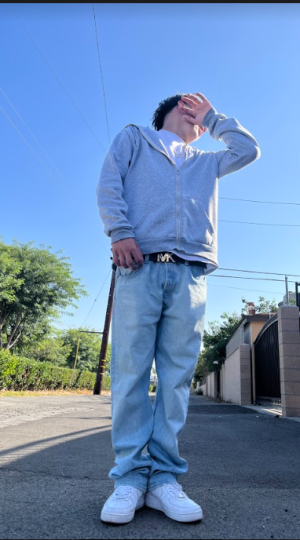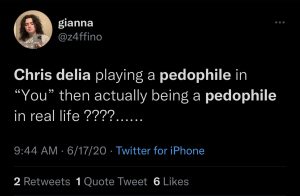Homophobes on the Homescreen
People respond rudely to a pride flag on the social media platform Instagram.
February 12, 2020
Social media is both the best and worst thing to happen to the LGBTQ+ community.
Recently a big beauty YouTuber, Nikkietutorials, came out as transgender after being on the platform for 11 years.
“I hope by me standing up and being free that it inspires others to do the same and to truly live your life as you want it,” said Nikkie in her coming out video.
A lot of the comments were positive and encouraging.
“What I’m hearing is that a trans woman dominated the makeup industry without anyone’s knowledge… I stan,” said one commenter.
“You are loved, you will always be loved no matter what gender you are,” said another commenter.
While there are many comments that show love and support towards Nikkie, there are many more that are transphobic and malicious.
“Our society is really decaying!! This is a MAN and he needs help with his gender issues. Him thinking he is a woman does not make him a woman,” said Instagram user @juneof84.
Some commenters are even using religion to justify their hate.
“You’re a man. God doesn’t make mistakes,” said Instagram user @sunflowerandrimance_.
“Calling LGBTQ people deprived, disordered, or sinful is hate speech, no matter what your religion tells you,” said James Finn, a media blogger.
But it’s not just big influencers that get malicious comments based on their sexual orientation.
Saddleback HS senior Mary Escalante shares her experiences with social media.
“I have been a victim of malicious comments on social media. I know the person had said something out of anger and misunderstanding and I wasn’t going to waste my time on a situation I didn’t care about,” Escalante said.
The nature of social media can lead to encouraging harmful and alienating behavior towards others because of the way they identify, instead of encouraging them to embrace their true selves.
“I think social media can expose us to certain ideologies that totally reject the acceptance of differing sexual orientations,” said Escalante.
For some, it has gotten to the point where they are scared to say anything.
“I have experienced it before and it sucks, you kinda just hear people talk bad about you and sometimes you don’t really want to do anything about it because you are kinda too scared of what they might do but you just kinda have to ignore it,” said sophomore Justin Memije-Funes.
But social media also lets people be more open about themselves in ways they can’t in real life. According to The Human Rights Campaign, roughly three quarters (73%) of LGBT youth say they are more honest about themselves online than in the real world.
“Social Media is a way to connect with people that are just like you. In real life, it’s a little harder to meet people, just because some people don’t want to come out yet because they’re scared and on social media, it’s a little easier,” said Memije-Funes.
Ensuring that anti-LGBTQ+ people do not continue to hurt and insult others may require us to turn to one of our oldest tools: education. According to reports from GLAAD, they found that increased knowledge about LGBT people leads to lower levels of discomfort toward this community, and thus we can reduce anti-LGBT discrimination.
“Educate youth on the history behind gay rights and movements such as the Stonewall riots. That way, the future generation can learn about this topic as it is becoming more apparent in our society,” said Escalante.
































